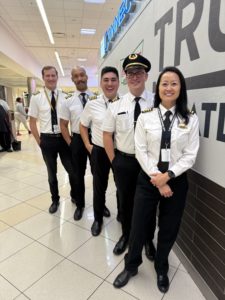Before beginning a career in aviation, it is essential to understand the job market and hiring trends. In recent years, the aviation industry has experienced significant fluctuations, particularly following the COVID-19 pandemic. The demand for pilots surged as travel resumed, leading to discussions about a widespread pilot shortage. But what is the current state of the industry? Is there still a shortage of pilots, and what opportunities are available for new pilots?
The Current State of the Pilot Shortage
Following the pandemic, the aviation industry saw an extraordinary resurgence. After months of lockdowns and restrictions, travelers were eager to explore the world again, leading to an increase in flights and a higher demand for pilots. In response, airlines began hiring to address staffing shortages. By 2025, major airlines have largely stabilized, returning to standard hiring practices. However, regional airlines continue to face challenges in recruiting and retaining pilots.
For aspiring pilots, this presents a unique opportunity. Since most pilots begin their careers with regional carriers before advancing to larger airlines, the ongoing shortage of this level means strong job prospects for those entering the industry.
The FAA Retirement Rule and its Impact on Hiring
The Federal Aviation Administration (FAA) enforces strict regulations regarding pilot eligibility, including a mandatory retirement age of 65. This policy aims to maintain safety standards, considering potential health, vision, and cognitive concerns associated with aging. However, it also magnifies the ongoing pilot shortage, as many experienced pilots are required to retire even if they are in good health and willing to continue flying.
Historically, there were sufficient new pilots to replace those retiring, but this trend has shifted due to several factors:
- Declining Military Training Pipelines: In previous decades, a substantial portion of commercial pilots transitioned from military aviation, entering the airline industry with extensive training and experience. The number of military-trained pilots has decreased significantly, reducing this once-reliable talent pool.
- High Costs and Lengthy Training Requirements: Becoming a pilot requires a considerable financial investment and a lengthy training period. Many individuals who aspire to fly professionally face barriers such as tuition costs, training fees, and the time commitment necessary to obtain the required certifications.
Enhancing Employment Prospects as a Pilot
While demand for pilots remains high, securing a position still requires effort and preparation. To improve hiring chances, aspiring pilots should consider the following strategies:
- Enroll in a Reputable Flight School
- Excel Academically
- Accumulate Extensive Flight Hours
- Stay Persistent
- Prepare for Interviews
By following these steps, aspiring pilots can increase their chances of securing a position with an airline.
 Accelerating Entry into the Aviation Job Market
Accelerating Entry into the Aviation Job Market
Many individuals entering the aviation industry wish to begin their careers as quickly as possible. Accelerated training programs offer a solution by condensing flight training into a structured timeline, allowing candidates to obtain their commercial pilot license in under a year.
Prospective pilots should seek out FAA Part 141 programs, such as those offered by Superior Flight School, which adhere to rigorous training standards and improve student’s employability. By selecting a well-regarded program and committing to intensive training, aspiring pilots can fast-track their careers and enter the job market sooner.
By selecting Superior Flight School for flight training, gaining flight experience, and preparing diligently for interviews, aspiring pilots can maximize their chances of securing employment. With dedication and persistence, the dream of becoming a professional pilot remains highly attainable in 2025 and beyond.
Are you interested in learning more about Superior Flight School? Contact admin@superiorflight.com.
